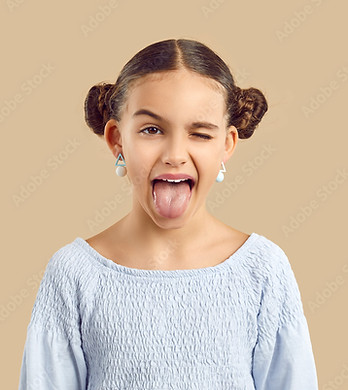Supporting Healthy Oral Function
Oral Motor Therapy
for Toddlers & Kids
The way a child breathes, eats, speaks, and rests their mouth can all be influenced by how well their oral muscles are functioning. When the muscles of the face, tongue, and mouth aren’t working together in harmony, it can lead to challenges that impact daily life—and long-term development.

Myofunctional therapy uses gentle, targeted exercises to help improve strength, coordination, and awareness of these muscles. In toddlers, signs that therapy may be helpful include persistent drooling, open-mouth posture, speech delays or articulation difficulties, trouble chewing and swallowing, or frequent gagging and food refusal.
Undiagnosed oral ties can also contribute to these issues by limiting tongue movement and altering typical muscle function.
In older children, referrals often come from orthodontists or dentists who observe high, narrow palates, overbites, tongue thrust, or mouth breathing. These patterns can affect facial growth, dental development, and even sleep quality.
Therapy is tailored to your child’s specific needs and developmental stage. Sessions may include playful, age-appropriate exercises to improve tongue strength and coordination, nasal breathing habits, lip closure, chewing skills, and more.
Your child’s plan will be built around their unique goals and challenges, with collaboration from speech therapists, dentists, and orthodontists when appropriate.
